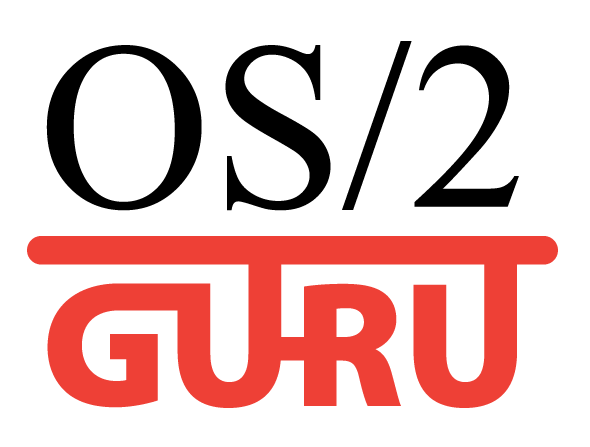OS/2.GURU Library
Reviews / articles about OS/2 eComStation ArcaOS
ArcaOS, eComStation, IBM OS/2 Warp

OS/2.GURU LibraryReviews / articles about OS/2 eComStation ArcaOS |
Operating systems ArcaOS, eComStation, IBM OS/2 Warp |

|

|
|
|
DATE: 2004-02-28 23:18:27 AUTHOR: Roderick Klein
If you are using eComstation 1.1 and you are experiencing frequent traps (kernel dumps) then please read the following! People who use OS/2 (MCP 4.51 or MCP2 4.52) or WSeB or eComStation 1.0 this information might also be usefull for! eComStation 1.1 CD #2 contains the "TCP/IP tuner" (In both the German and English version). People who used this tool, please pay attention. Q. First of all: how can I tell if I have installed this TCP/IP tuner? A. Look in the directory \mtpn\etc\ for the file inetcfg.ini. If you do not know much about TCP/IP and the file is present, you most likely installed the TCP/IP tuner from CD #2. If the inetcfg.ini file is found, open it in an editor and look for the line with the term SACK, with a number 1 behind it. What to do: If that option is set to 1, remove the line from the file and save the file, to make certain the new settings are activated you should reboot your system! Background information: Q: Why was the TCP/IP tuner introduced ? A: People using Netscape 4.61 sometimes experience "broken pipe" messages on OS/2. Also the commandline tool nslookup.exe (to look up the IP adres that belongs to a domainname) sometimes is *very slow* or times out. If this is the case you will likely experience timeouts with other applications as well, because your system cannot properly connect to other systems on the internet. Overall TCP/IP performance can be bad (especially on dialup connections) To overcome these issues, the TCP/IP tuner was introduced. It will change a couple of the default TCP/IP settings to increase performance and reliability. Q: What is the problem with the SACK setting ? A: SACK means Selective Acknowlegdement. It is used between computers communicating over the internet or a LAN with the TCP/IP protocol. *Early* research seems to indicate that TCP/IP stack contains a bug. There are so called RFC's documents that describe how network protocols and its features should work. When connections are made to a computer connected to a network, the computer will allocate memory buffers etc. As connections are closed or timeout this allocated memory is released. When an OS/2 or eComStation system has the SACK option set to 1 somehow these buffers do not seem to be released. The result is that more and more of your systems RAM gets allocated (so called MBUFS). You can verify this by using the following command from the commandline: netstat -m: Two lines are important: mbufs obtained from page pool= protocol control block mbufs= If there are for example more then 5000 to 6000 buffers allocated then you could be affected by the SACK setting. It is no problem if there is a *peak* in the allocation of these buffers. The amount of buffers allocated by the TCP/IP stack should be dynamic. If the buffers are not released, the system will run out of memory (resources) and just lockup or trap. According to the RFC, SACK should only be used when another connecting party also has SACK enabled. This problem has also been reproduced on MCP 2 from IBM and an older TCP/IP stack from 2001. Who could be potentialy be affected by this:
Closing note: Everyone should apply the TCP/IP tuner to boost performance of the TCP/IP stack in eComStation. However, make sure the SACK line is absent (or the value set to 0) in the \MPTN\ETC\INETCFG.INI file.
Comments:
|
|
||||||||||||||||||||||
|
ArcaOS 5.1.1 whatsnew - PNG iconsPNG icons on Desktop PNG icons on Desktop. (instead of ancient .ico designed in 1994) |
We keep the memory about eComStationOS/2 Guru is the only web-site which talks about the deserts of eComStation (OS/2 Warp was used as base, the development started in 1999.. 2001.. till 2013). |
// надо на ENG!!
|
| Every conference is important. |
Warpstock Europe 2016
Interview with Roderick Klein
What was happening at that conference? The work on ArcaOS was starting.. |
